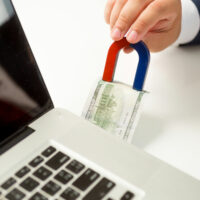
5 mistakes to avoid with flexible spending accounts
A flexible spending account (FSA) can be categorized as a savings account. It helps the owner get certain tax benefits. Sometimes also referred to as flexible spending arrangements, FSAs are helpful for health and dental care reimbursements, childcare, or care expenses for a dependent adult. But to get the best out of these, it is essential to learn about potential pitfalls. Here are some of the common mistakes to avoid with FSA. Assuming one can take the FSA with them after quitting a job FSAs work this way: An employee contributes a part of their salary to the fund, and the employer contributes the rest. Therefore, the FSA money stays with the employer once an employee quits a job. Hence, it is usually recommended to use up any pending healthcare expenses when one is planning to leave an employer. For instance, one can fill a prescription or buy eligible OTC products that they may need in the future by using the remaining FSA funds before they quit the job. Not getting to know what the FSA will pay or not pay for Most people are not aware which services and products come under eligible expenses for an FSA. For example, some may assume that gym memberships or insurance premiums can be paid for with a flexible spending account.
Read More 





